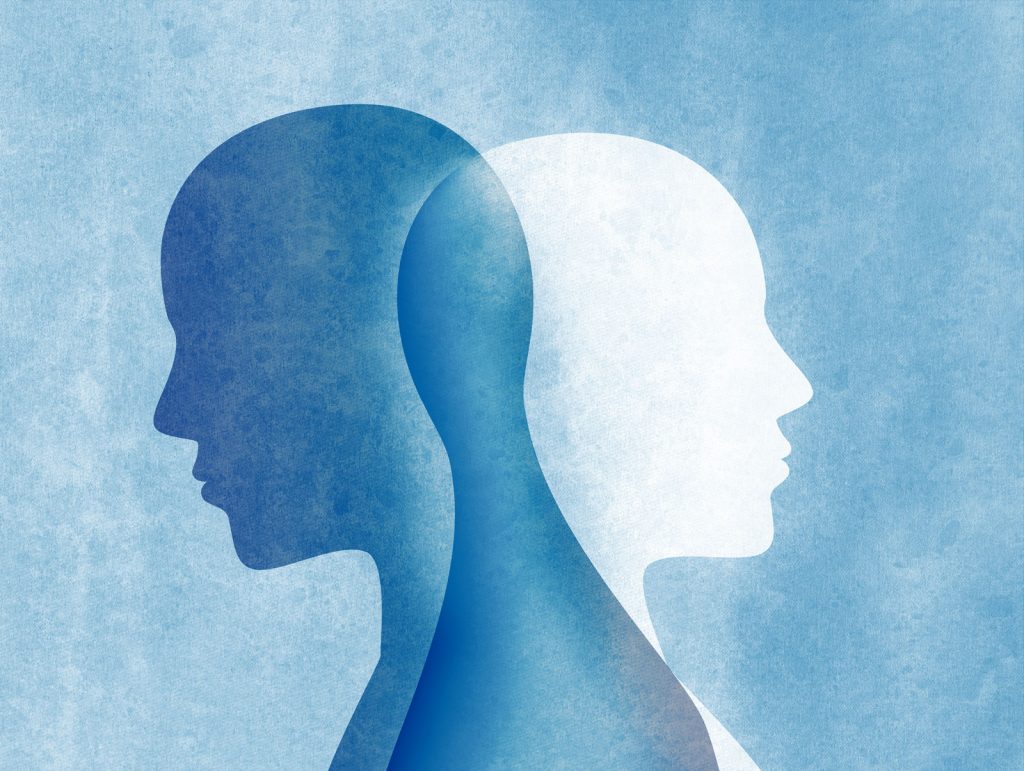When you or your loved one has both an addiction problem and another mental health concern, doctors use the term “co-occurring disorders” to describe the person’s condition. To treat co-occurring disorders, physicians often suggest a dual diagnosis approach. In 2021, close to four percent of the adult population in the United States received a dual diagnosis for substance use disorder and at least one co-occurring illness. However, this high rate of comorbidity among those struggling with addiction doesn’t prove that one disorder caused the other.

Table of Contents
- 1 Understanding Dual Diagnosis
- 2 Challenges of Dual Diagnosis
- 3 Benefits of Dual Diagnosis Treatment
- 4 Key Components of Dual Diagnosis Treatment
- 5 Case Studies: Dual Diagnosis Treatment Success Stories
- 6 How to choose the Right Dual Diagnosis Treatment Center
- 7 Overcoming Barriers to Dual Diagnosis Treatment
- 8 Conclusion
- 9 Resources and Further Reading
Understanding Dual Diagnosis
There is an intricate, interconnected relationship between mental illness and addiction. Some of the most common co-occurring mental health disorders seen with addiction are:
- depression
- Anxiety disorders
- post-traumatic stress disorder (PTSD)
- schizophrenia
- attention-deficit hyperactivity disorder (ADHD)
- bipolar disorder
- eating disorders
- obsessive-compulsive disorder (OCD)
Important statistics that reveal the importance of dual diagnosis treatment include (source, source):
- Lifetime prevalence estimates of nearly 30% and 15% for anxiety and drug addiction, respectively, place them among the most common mental conditions in the United States.
- 32% of those who suffer from mood disorders are also likely to struggle with substance abuse.
- 16% of people with significant depression in their lives also have a problem with alcohol abuse, and 18% have a problem with drug dependency.
- 56% of individuals diagnosed with mental disorder — bipolar disorder are more likely to have a substance use disorder than the general population.
Challenges of Dual Diagnosis
Substance use disorders and other mental health problems are functionally interwoven in their development as well as in their ongoing progression of comorbidity. Because of the overlap in symptoms, particularly extreme mood changes, problems concentrating, and codependency, it is difficult to make an accurate diagnosis of a person with a co-occurring disorder. This may lead to increased difficulties in addiction treatment, higher rates of relapse, a worsening of both conditions, and a greater likelihood of death.
Treating co-occurring disorders is often difficult for a number of reasons, including:
- Both substance abuse and mental illness share a number of risk factors.
- Substance abuse worsens mental health issues.
- Mental health issues can lead to the use of drugs and alcohol addiction.
- Addiction can lead to the development of mental health issues.
Comorbidity may develop through one of three primary routes. Addiction specialists with a thorough understanding of these intricate pathways can offer accurate diagnoses and useful substance abuse treatment suggestions. The three pathways to comorbidity are:
- First, a person may acquire an addiction because of their mental health condition (anxiety, depression, bipolar illness, etc.).
- Substance abuse may also contribute to the emergence of co-occurring mental health conditions like anxiety when taken as a whole.
- Thirdly, a person’s genetic makeup may have a role in the development of both an addiction and another mental health issue, such as bipolar disorder.

Benefits of Dual Diagnosis Treatment
Dual diagnosis treatment provides a comprehensive intervention in treating multiple disorders simultaneously for a more effective recovery process. During the substance abuse disorder treatment process, an extensive amount of integrated support and coordination between addiction specialists and mental health professionals and clinicians will take place to address the root causes of your disorders and treat the underlying issues exacerbating both conditions.
Other reasons that dual diagnosis treatment is invaluable to the management of co-occurring disorders like depression and addiction include:
- better quality of life
- treat more than one disorder at the same time
- lower rates of relapse
- enhanced motivation to achieve sobriety and sound mental health
- coordinated, co-located, or integrated treatment option approaches available
- treat underlying causes of all mental health illnesses
- improved coping skills
- self-respect
- mindfulness
- distress tolerance
- emotion regulation
- access to community support group services
- whole-body detox treatment
- specialized treatment from experts who specialize in co-occurring disorders
- ongoing aftercare to improve disorder management
Key Components of Dual Diagnosis Treatment
In order to determine whether you have an addiction or any other co-occurring disorders, your physician will perform an array of tests. Talking openly and honestly with your doctor during the diagnosis process is essential because your responses will help them diagnose any illnesses and recommend proper treatments.
When seeking treatment for a dual diagnosis, it’s imperative to look for a provider that offers the following key components to ensure you get the most effective treatment possible (source):
- Evaluation, analysis and diagnosis. Full diagnostic evaluations to rule out false positives and make accurate diagnoses are essential to treating more than one mental health disorder at the same time.
- Customized health care programs. Tailored treatment plans to address your individual and unique needs boost the efficacy of your addiction recovery.
- Medication administration. Medication such as bupropion, buprenorphine-naloxone, methadone, acamprosate, disulfiram, and varenicline are often used to treat addiction and co-occurring disorders simultaneously.
- Cognitive behavioral therapy. CBT is an effective behavioral health psychotherapy for those struggling with drug use disorders because of its focus on altering unhelpful thoughts and actions. Anxiety and mood problems in children and adolescents respond well to cognitive-behavioral treatment.
- Dialectical behavior therapy (DBT). This form of individual therapy reduces suicide ideation, intent, and actions, as well as other forms of self-harm including cutting and substance abuse. It’s one of the few pharmaceutical approaches that works well for those with borderline personality disorders.
- Peer Support. Group therapy sessions, in which peers help one another through the sharing of experiences and methods of dealing with difficulties, improves recovery rates.

Case Studies: Dual Diagnosis Treatment Success Stories
Research shows that while co-occurring disorders affect a sizable fraction of the general population, veterans are disproportionately impacted by them. Nearly one-third of veterans with drug use disorders who seek treatment for addiction also suffer from post-traumatic stress disorder.
Sadly, half of returning military personnel with mental health concerns do not get proper treatment. Even more tragic is the fact that when veterans with co-occurring disorders don’t get treatment, they are more likely to face concerns including imprisonment, homelessness, health problems, and suicide behaviors.
Data from numerous studies shows the effectiveness of dual-diagnosis treatment for those with co-occurring illnesses. One study indicated that patients who received treatment for addiction and a co-occurring mental health issue had a 66% greater chance of obtaining long-term remission. The monthly rate of intoxication for those in the study also decreased by 88% and 90%, according to the same research.
One famous person who has significantly benefited from dual diagnosis treatment is singer Demi Lovato. When asked about her progression in recovery after going through dual diagnosis treatment, she says, “I feel like I am in control now, where my whole life I wasn’t in control.”
When Lovato was 22 years old, she received a dual diagnosis for addiction and bulimia and checked into a drug rehab center. It was during her three-month stint at a treatment clinic that she finally learned why she was having difficulties managing her emotions and behaviors.
How to choose the Right Dual Diagnosis Treatment Center
Coordinated care, co-location, and full integration are the three primary approaches for treating more than one mental health disorder at the same time. Each approach has its pros and cons, making it important to assess your individual needs before entering a treatment program.
Addiction and mental health treatment providers often benefit from the co-location treatment approach because it allows them to offer a variety of services from a pool of facilities, resources, and personnel. Patients who choose a co-location treatment model benefit from a faster referral process, increased access to care from specialists in treating co-occurring disorders, and open lines of communication between all members of the patient’s treatment team.
Following a coordinated treatment approach is especially advantageous in helping patients navigate complex care networks. However, a full integration approach to dual diagnosis treatment unifies previously separate services to provide a more cohesive care experience for patients. By addressing the whole person rather than just the addiction, integrated care improves both the quality of care and health outcomes.
Ask yourself these questions when searching for a dual diagnosis treatment facility to ensure you choose the best one for your situation:
- Does the facility offer dual diagnosis services?
- What mental health disorders does the facility specialize in treating?
- What therapies does the program provide?
- Does the facility have proper accreditation and licensure?
- Does the program offer an integrated treatment approach?
- Is there someone working at the facility who can prescribe medications?

Overcoming Barriers to Dual Diagnosis Treatment
Addiction is often seen as a moral failing and a lack of self-control, which contributes to the stigma surrounding it. Beliefs that people with mental or substance use disorders are dangerous, inept, or responsible for their condition are examples of the stigma that they face. Assault may also take the form of labeling someone as weak for asking for assistance.
Unfortunately, the consequences of stigma on mental health are often detrimental. It can affect a person’s willingness to seek treatment as well as their openness to various treatment approaches. A person’s confidence and hope in their own recovery may also suffer as a result of stigma.
Among the most effective strategies for decreasing the social stigma associated with mental illness and substance abuse are:
- Raising awareness of mental health and drug abuse issues.
- Taking stock of your mental and emotional state.
- Reaching out for treatment instead of fearing help.
- Taking caution with the words you use when speaking about addiction and mental health.
- Keeping an optimistic outlook.
- Helping those in need.
- Building a strong support network.
- Treating mental illness is the same as treating a physical disease.
- Being honest during therapy.
In addition to stigma, limited access to dual diagnosis services can play a large role in a person’s recovery. Fortunately, there are several ways to afford and access dual diagnosis treatment, and it starts with speaking to a certified drug counselor at the Garden State Treatment Center.
Professional therapists at Garden State Treatment have extensive experience with individualized plans for treating people who have co-occurring illnesses. Over the length of a client’s stay, addiction counselors and mental health experts will reassess their progress and make any required adjustments to the treatment plan.

Conclusion
When co-occurring disorders don’t receive simultaneous treatment, the symptoms of each illness can aggravate one another, further complicating diagnosis and treatment progress, especially if the patient opted for self-medication. Having both diagnoses and treating both disorders at the same time aids in the individual’s education on aftercare, in addition to developing strong coping and living skills that they can use in all parts of life
If you or someone you love is struggling with co-occurring disorders, now is the time to take an integrated treatment approach. Patients have the option to avail of evidence-based inpatient individualized treatment, residential treatment, and intensive outpatient programs. Contact the Garden State Treatment Center today to start the treatment process and inquire about the best treatment options for you or your loved one.
Resources and Further Reading
Here are some additional resources you can use to learn more about dual diagnosis and the treatment process for co-occurring disorders.
Books on Dual Diagnosis
- How to Overcome the Challenges of Dual Diagnosis
- Dual Diagnosis: Counseling the Mentally Ill Substance Abuser
- Integrated Treatment for Dual Disorders: A Guide to Effective Practice – 1st Edition
- Dual Diagnosis: Counseling the Mentally Ill Substance Abuser Second Edition
- Understanding Addiction: Know Science, No Stigma
Articles
- Dual Diagnosis: Double the Stigma, Double the Trouble
- What kind of science for dual diagnosis? A pragmatic examination of the enactive approach to psychiatry
- Dual Diagnosis: 15 Years of Progress
- Dual diagnosis: A systematic review of the organization of community health services
- Dual Diagnosis
Online Resources
- Resources for Families Coping with Mental and Substance Use Disorders
- Dual Diagnosis Network
- Dual Diagnosis Hub
National and Local Helplines
- National Alliance on Mental Health: 1 (800)-950-6264
- SAMHSA Helpline: 1 (800)-662-4357
- National Drug HelpLine: 1 (844) 289-0879



